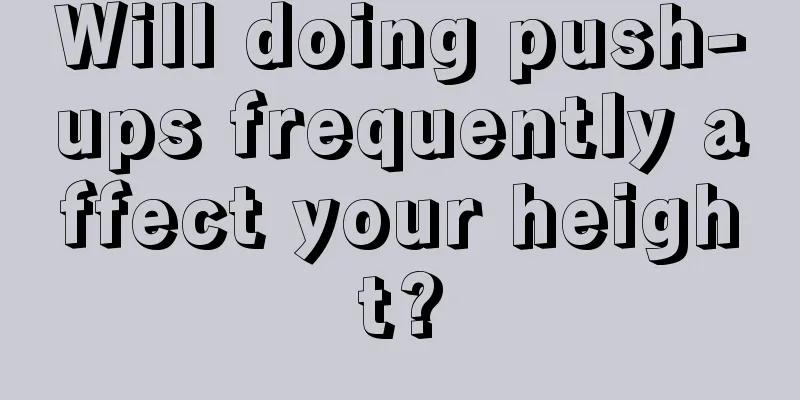Five training methods to improve basketball coordination

|
Agility and coordination refers to the ability of a person to quickly, correctly and coordinately change body movements under various sudden changes in conditions. It is also an indispensable physical quality in daily physical exercise. It plays a vital role in improving agility and coordination, as well as the development of other qualities. Especially for playing basketball, coordination is very important. So how can we improve our coordination in daily life? Five ways to get results 1. Single action series repetition practice method 1. Shoulder Circle: Start by standing upright with your arms raised. One arm is straight and swings in a circle forward, downward, backward and upward, while the other arm is swinging in a circle backward, downward, forward and upward, all with the shoulder joint as the axis. Proceed one by one. 2. Vertical jump: Put your feet together and jump upwards with your hands bent. 3. Jump forward and backward: put your feet together, bend your hands and jump upwards, but jump forward and backward. 4. Turn jump: Jump upward with your feet together and hands bent, but after jumping, turn 180 degrees and land on the ground. The body and hands must maintain balance. You can jump to the left or right. 2. Action combination training method 1. Burpees and jumps with 360° turns Start in a push-up position, bend your knees and lift your thighs into a full squat. After standing up, immediately push off the ground with both feet and jump vertically as fast as possible, actively swing your arms upward, and turn 360° in the air. When transitioning to the next movement, you should quickly bend your knees and squat down. As your hands are about to support the ground, stretch your feet backwards to form a push-up. Continue continuously. 2. Whole body waves Start by standing with your legs slightly apart. First do straight-leg forward bends, then kneel forward (tighten the abdomen, hold the chest, and lower the head), push the hips forward (tighten the abdomen, hold the chest, and lower the head), push the abdomen forward (hold the chest and lower the head), lift the chest and raise the head, making a reverse "S" shape, and draw circles with the arms at the sides of the body, continuously. 3. Combination exercises of uncoordinated movements Raise your right hand while taking a right step, raise your left hand while taking a left step, step back with your right hand on your waist, step back with your left hand on your waist, and change the rhythm. Conditioned Stimulus Training 1. Change direction running practice (1) Practice sprinting forward 5 meters, then backward 3 meters, then sprinting to the left 5 meters, then sprinting to the right 3 meters. (2) Draw a square on the ground with a side length of 10 meters and practice running in both clockwise and counterclockwise directions. 2. Dodge Practice on the Move Use small gymnastics mats to set up obstacles, and the practitioners use forward sliding steps and left and right sliding steps to dodge the small gymnastics mats and move forward quickly. 3. Quick rotation exercises Follow the teacher's instructions and practice rushing forward, then suddenly stopping and then rushing backward. 4. Game practice method 1. Chase Exercise Divide the practitioners into groups of two. One party will run first and the other party will chase. They should keep a distance of 3-5 meters before starting. After catching up and tapping the other party on the shoulder, they will switch practices. 2. Push and pull exercises Divide the practitioners into groups of two and have them stand in a circle with a diameter of 2.5 meters. Both sides are allowed to use pushing and pulling methods. The one who steps out of the circle with one foot will be the loser. 5-15 times as a set, practice 2-3 sets 3. Touch Exercise Divide the practitioners into groups of two, and require them to touch each other's shoulders with their hands within a certain range. They can use footwork to move and dodge. 5. Equipment-based exercise method 1. The practitioner stands naturally, and two or more classmates hold a volleyball or basketball and throw it to the practitioner. The practitioner uses force to dodge to avoid being hit. Practice for 15-20 seconds per set and repeat 3-5 sets. 2. The practitioner holds a tennis ball or elastic ball, stands 2 meters away from the wall, throws the tennis ball or elastic ball toward the wall, and quickly catches it with his hands when it bounces back. During the practice, both feet should move back and forth and left and right constantly. Practice for 15-20 seconds as a set, and repeat 3-5 sets. In short, there are many training methods to improve agility and coordination. We should enrich the training methods as much as possible and eliminate students' practice fatigue to ensure good results of practice. |
<<: Can pregnant women eat daylily?
>>: Four correct ways to train with kettlebells
Recommend
What are the characteristics of fitness equipment for doing push-ups?
Many people used to do push-ups at home, but afte...
You can actually take shortcuts when it comes to fitness. Are you good at it?
Fitness is not all about working hard, nor is it ...
What are the benefits of running for thin people?
As people in modern society are becoming more and...
What is the first aid knowledge for outdoor sports?
We are now under a lot of pressure in work and li...
Can men practice yoga?
Nowadays, many people go to yoga studios to pract...
Can sweating during exercise help detoxify?
In life, most people like to do sports. Even in t...
How long does it take to do yoga?
Yoga is a well-known sport. Especially for some w...
Can I continue to practice yoga during my menstrual period?
Since yoga can greatly benefit women's temper...
Is it good to climb stairs every day to lose weight?
If people want to lose weight in winter but are a...
What exercises are suitable for the waist?
Nowadays, many people sit all the time when they ...
How do girls exercise their back muscles?
There are now many different ways to train muscle...
Does aerobic exercise slow down weight loss?
Nowadays, many friends who want to lose weight of...
What are the yoga poses for regulating qi and blood?
In life, people often have poor blood circulation...
What are the methods of Taekwondo practice?
Nowadays, more and more people are practicing Tae...
What are the exercises for abdominal muscles?
Having 6 or 8 pack abdominal muscles is the goal ...









